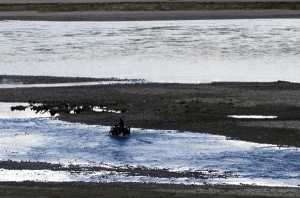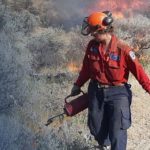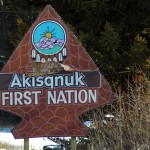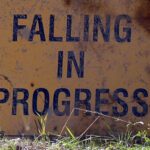Home »

ORV fees to help fund trail upgrades
B.C.’s network of off-road vehicle-friendly backcountry trails is getting a boost, thanks to a new provincial government fund, Minister of State for Rural Economic Development Donna Barnett announced today on behalf of Minister of Forests, Lands and Natural Resource Operations Steve Thomson.
The ORV Trail Management Sub-Account is financed through a portion of fees ORV owners pay to ICBC when registering their vehicles. The $320,000-and-growing fund is dedicated to supporting projects that build new – and maintain existing – vehicle-friendly recreation trails in remote and rural areas throughout the province and to promoting safe and responsible ORV use, a Ministry of Forests, Lands and Natural Resource Operations (MFLNRO) press release outlined.
 In 2015, the province introduced mandatory registration for off-road vehicles operated on Crown land. Since then, British Columbians have registered more than 100,000 ORVs, at a one-time fee of $48 per vehicle.
In 2015, the province introduced mandatory registration for off-road vehicles operated on Crown land. Since then, British Columbians have registered more than 100,000 ORVs, at a one-time fee of $48 per vehicle.
The fee is designed to support the province’s off-road vehicle management framework, an integrated plan designed that ensures off-road vehicles – including snowmobiles, all-terrain vehicles or “quads,” dirt bikes and side-by-sides – are driven in a safe and environmentally responsible manner.
“The new ORV trail fund will support the construction and maintenance of vehicle-friendly recreational trails in remote and rural areas, providing local jobs and supporting our goal of enhancing a world-class trail network that provides opportunities for all users groups,” stated Thomson.
The Ministry of Forests, Lands and Natural Resource Operations, through its Recreation Sites and Trails branch, will administer the fund. Staff is developing formal project guidelines that will be available to First Nations and stakeholder groups for review this fall. No projects will be selected until the formal guidelines and application process are in place.
“Many towns in rural B.C. are turning to recreation as an important way to attract and retain residents and help diversified local economies. The new fund doesn’t just mean that our off-road trails will be safer and better maintained, it represents real support for rural communities, and will help create jobs and enhance regional tourism opportunities,” said Barnett.
Some provincial Crown land accessing associations are on board with today’s announcement.
 “We are pleased to support the ORV registration and licensing process, and are happy that we now have a fund in place that will assist us to focus on connecting and maintaining trail networks and increasing the opportunities for riders to get out and responsibly enjoy the activities we love,” said Moira Jaatteenmaki, president of the Quad Riders ATV Association.
“We are pleased to support the ORV registration and licensing process, and are happy that we now have a fund in place that will assist us to focus on connecting and maintaining trail networks and increasing the opportunities for riders to get out and responsibly enjoy the activities we love,” said Moira Jaatteenmaki, president of the Quad Riders ATV Association.
Jeremy McCall, executive director of the Outdoor Recreation Council said the new fund “is a positive step for our outdoor recreational users and helps support the responsible use of B.C.’s outdoors while enhancing public recreation opportunities in B.C.’s back-country. We look forward to supporting the great work that is going to be done upgrading and advancing B.C.’s trail system.”
Richard Cronier, president of the B.C. Snowmobile Federation added: “We are very pleased with the new fund and we look forward to working closely with government and other recreational partners to enhance our motorized off-road trail system and recreational opportunities for organized snowmobiling in B.C.”
Projects supported by the new fund will be in line with B.C.’s trails strategy, which guides the province as it works to sustain a network of environmentally responsible backcountry trails. B.C. developed the strategy in consultation with First Nations, local and regional governments, recreational organizations and industry, the MFLNRO press release stated.
B.C.’s recreation sites and trails receive around 9.7 million visitors each year and contribute $112 million to the provincial GDP. B.C.’s recreation sites and trails support 2,700 full-time jobs in rural and remote locations throughout B.C.
e-KNOW







